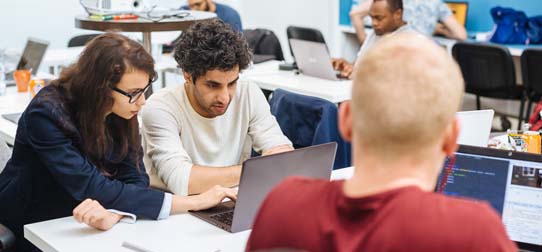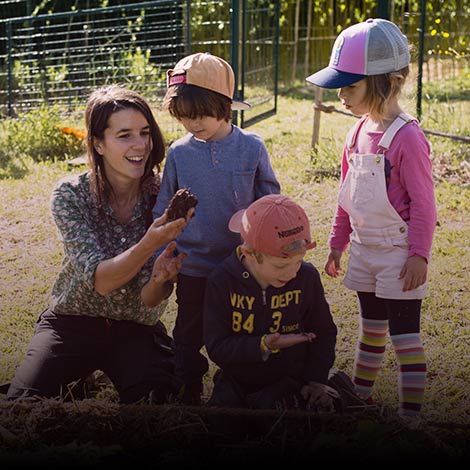Pages
Higher education
Donor-advised funds commit to making higher
education accessible to all
Quality, innovation, accessibility and more
Our donor-advised funds dedicated to higher education are mobilizing to help students and institutions. They focus on two main fronts: making higher education more accessible through scholarships for students in financial need, and helping educational institutions develop by funding campus improvements (renovations, new teaching tools, etc.) and pedagogical innovations. They committed a total of over 11 million euros in 2020 through their combined alumni networks, as well as through numerous partner enterprises.
Bringing together diverse talents
Donor-advised funds like these are on the increase. Whereas management schools like Essec and Audencia were the first to use this philanthropic tool, now all kinds of institutions are creating funds, from schools of gastronomy (Fondation Gilles et Gérard Pellisson, who assist the Institut Paul Bocuse), to engineering schools (Fondation Georges Besse), to fashion institutes (Fondation de l’Institut Français de la Mode). Today Fondation de France has close to 40 donor-advised funds that are dedicated to higher education.
Created by individuals or businesses, these donor-advised funds offer scholarships that allow students without sufficient financial resources to pursue their studies. For example, every year the Fondation Vallet helps young French, Beninese and Vietnamese students – 50,000 scholarships have been awarded since the fund was created in 1999! The Fondation des Territoires aux Grandes Écoles brings individuals and businesses together to grant merit scholarships, giving talented high school students from rural areas access to quality higher education.
Taking on the health crisis
The Covid-19 crisis has shown a harsh spotlight on the issues facing students in need. To cope with this emergency, higher education institutions have been able to rely on their donor-advised funds, which have actively offered food and financial and psychological support, among other types of assistance. For example, at the Fondation emlyon business school, a wide network of alumni, parents and partners are working together to help some 300 students. The school has also organized health seminars and set up a psychological support unit that includes online support groups, help lines available 24/7 and assistance for students with disabilities.
Find out more about the donor-advised funds that work in this area
Donate to a cause close to your heart
We ensure that your gift is used in the most effective way possible in the field or fields of your choice.
Supporting children, their family and young people experiencing difficulty
Supporting children, their family and young people experiencing difficulty
In France, one child in five lives under the poverty threshold, and the Covid-19 pandemic has made things tougher for many families. With poverty and exclusion spiraling, Fondation de France is committed to supporting these young people and children in the middle of their development, including their loved ones.
We know that children’s living conditions in childhood are a good predictor of their adult life and of their opportunities to find fulfilment and purpose, achieve academic success and enjoy social interactions. We also know that, faced with adversity, children and young people reveal a remarkable capacity for resilience. Supporting young people and their families in difficult circumstances, as early as possible in their life journey, means combating the unfairness of inequality over the long term.
Since 2007, thanks to calls for projects and direct aid, the Children and Families Experiencing Difficulty program led by Fondation de France is active on two fronts:
- it supports parenting projects for families facing a range of problems on a daily basis. For greater effectiveness, the projects retained must promote preventive action and sustained collaboration between families and the various facilitators who will assist them, the overall goal being to serve the interest of the child;
- it provides protection measures to young people at risk (ill-treated children, witnesses to domestic violence, those in child social welfare and youth legal protection services). Among them are non-accompanied migrants who are minors, who represent an increasing proportion of the children in social welfare services. Projects supported focus on academic success, access to culture, to healthcare and so on. These projects represent essential leverage in young people’s future social integration.
In addition, the Covid-19 pandemic has revealed the extent of the poverty many families have to live with – and the particular vulnerability of single-parent families. Looking beyond emergency action, Fondation de France continues to support those organizations that step up to meet their needs, which include food aid, access to healthcare and hygiene, support with schooling and combating domestic violence. Several foundations have placed underprivileged children at the heart of their work, as is the case for the Ardian, Meeschaert and for Mustela Fondation de France donor-advised funds.
Contact

Call for projects
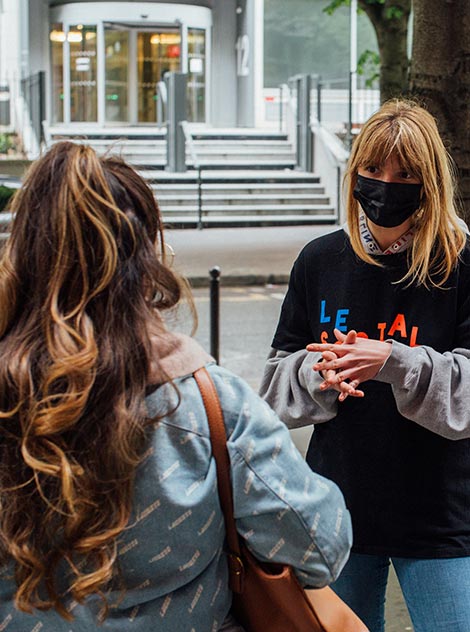
The Fondation de France Childhood program encourages projects, in which society and the family circle pay greater attention to children and young people.
Supporting children, their family and young people experiencing difficulty
The projects supported reinforce young people’s ability to take action and gain more independence, to help them deal with life events over time.
Call for projects

The Fondation de France Childhood program encourages projects, in which society and the family circle pay greater attention to children and young people.
Supporting children, their family and young people experiencing difficulty
The projects supported reinforce young people’s ability to take action and gain more independence, to help them deal with life events over time.
Find out more
Donate to a cause close to your heart
We ensure that your gift is used in the most effective way possible in the field or fields of your choice.
Environmental education: raising awareness
Environmental education:
raising awareness
The transition towards a world that has more respect for the environment cannot happen without the participation of current – and future – citizens of the world! In light of the current health crisis, educating future generations about their environment and how to protect it is more important than ever.
The knowledge challenge
The goal of environmental education and awareness-raising is to give everyone the keys to a world that respects the balance between humans and nature.
Starting in 1993, Fondation de France has been behind innovative pedagogical programs like Rouletaboule (addressing consumption and waste), and Ricochets (focusing on water issues). Today, Fondation de France is concentrating its efforts on three activities: the Branféré botanical and animal park, the École Nicolas Hulot (a “school” for environmental education) and honorariums for volunteers participating in the “J’agis pour la Nature” platform.
Inspiring wonder and contemplation, a visit to Branféré Park is an opportunity to explore the crucial issues and infinite complexity of the relationship between humans and their environment. Resource management, species protection, scientific research, cultural, philosophical and esthetic considerations – the essential elements of our relationship with the world.
To strengthen the park’s educational mission, Fondation de France and the Fondation pour la Nature et l’Homme (The Foundation for Nature and Man), joined forces in 2004 to create the École Nicolas Hulot. School outings, camps, mini-camps, seminars – a wealth of fun educational activities designed to teach young people about the environment.
In keeping with its commitments, since 2015 Fondation de France has been funding honorariums for “J’agis pour la Nature”, supporting environmental awareness-raising and protection activities. Finally, Fondation de France also supports the OPEN Sciences internet platform, which allows everyone to contribute to data collection on a wide range of animal and plant species.
Training young people… and adults
To encourage the nonprofits it supports to embrace transition, Fondation de France works with them as they embark on or pursue their environmental journey. With that in mind, it has developed a specific tool to assist them: “e+ : Going green”, in partnership with Union nationale des Centres permanents pour l’environnement (a French network promoting environmental practices). In practice, help takes the form of methodology, to assess a given project’s environmental impact and identify the most sustainable solutions.
Contact

Donate to a cause close to your heart
We ensure that your gift is used in the most effective way possible in the field or fields of your choice.
Democracy, human rights and solidarity: fighting together against injustice
Democracy, human rights and solidarity: fighting together against injustice
All over the world, civil society organizations have mobilized to defend human rights and the rule of law. In 1995, Fondation de France created a dedicated program to support these organizations, to strengthen their capabilities and their networks. Some donor-advised funds put human rights at the center of their mission. Others integrate human rights responses into their specific cause (the right to housing, fighting discrimination, access to health care, and so on).
Developing and preserving civil, political, economic, social and cultural rights, fighting against all forms of discrimination against gender or minorities, encouraging freedom of expression, association and education– issues related to human rights mobilize thousands of citizens and organizations around the world.
Fondation de France’s Democracy and Human Rights program supports these mobilizations both directly and through partnerships with other key actors in international humanitarian efforts, like the Civitates consortium.
Focusing on empowerment, the program follows three main approaches:
- contribute to democratic and participative dynamics in both the southern and northern hemispheres. Fondation de France supports projects that defend and promote human rights (including access to education for children and fighting against sexual violence, the death penalty, all forms of discrimination, mistreatment in prisons and so on). Equally involved in France, Europe, Africa, North Africa and the Middle East, Fondation de France is committed to the idea that in order to defend human rights, we must preserve democracy and thus strengthen the resilience of civil society. To that end, it works towards reinforcing capacity in civil society organizations;
- defend freedom of expression, freedom of the press and fighting against disinformation. Fondation de France supports projects that foster quality news and information, media literacy, and fight against “fake news” and the degradation of public discourse. It not only supports organizations that promote independent journalism, but also researchers, citizen groups, etc., who study new media formats to help develop new laws. Through its participation with Civitates, Fondation de France offers a helping hand to over 20 European foundations, all experts in the fight against disinformation;
- strengthen humanitarian efforts on an international level and help expand their networks. Encouraging democracy in the world goes beyond fighting for the respect of basic rights. It also means reinforcing social cohesion by including individuals and groups who are most at risk and developing both participation and solidarity. This conviction implies a special support for organizations that head networks, like consortiums and federations, in the realm of international solidarity (agronomy, family farming, local development, citizenship, etc.).
Human rights also mobilizes numerous donor-advised funds, like the Fondation BNP Paribas (on questions of information and media literacy), Fondation Raja (regarding women’s rights), Fondation Inkerman (protecting LGBT people against discrimination), and the Fondation Yo et Anne-Marie Hamoud, which supports the rights of migrants.
Finally, there is Mediterranean, from One Shore to the Other, a program dedicated to supporting civil society organizations around the Mediterranean. Employment, training, access to culture, civic engagement– in 12 years, Fondation de France has supported over 400 initiatives designed to respond to the needs of the most at-risk populations, in particular women and young people. The program also helps structure civil society on the Mediterranean’s southern rim and encourages the development of networks and partnerships between nonprofits on both sides of the sea.
Contact

Donate to a cause close to your heart
We ensure that your gift is used in the most effective way possible in the field or fields of your choice.
Early school leaving, a problem for individuals and society
Early school leaving, a problem for individuals and society
Half a million early school leavers because of lockdown... That’s the assessment based on teachers’ feedback. In some neighborhoods and regions, up to 30% students are thought to have been off the school radar, resulting in ever-increasing difficulty in catching up. More than ever, we need to reengage these young people and help them find the pleasure in learning again.
Let’s help all middle schoolers succeed!
With school being shut in France from March 16 to June 22, 2020, thousands of children and teens were left without any teaching. Despite commitment from teachers and often help from parents, as well as the resources made available, some young people simply dropped out.
The first to disengage were those whose grades and motivation were already shaky. And yet studies showed that, before lockdown, almost 40% of those at risk of early school leaving were not identified as such by their teachers!
Lockdown really showed the damaging impact of the digital divide and social inequality. Almost 25% of low-income parents felt that they had insufficient equipment and access to the Internet, compared to 17% of higher-income families. Equipment aside, the children generally had no guidance regarding online work. 45% of higher socioeconomic populations felt perfectly able to meet the digital requirements for remote schooling, compared to 31% of those with a lower socioeconomic background. And to cap it all, inequality has been exacerbated by practical and housing issues.
This very strange context prompted Fondation de France to address four themes:
- tackling early school leaving, with academic prevention and remediation activities;
- creating educational catch-up and re-engagement projects, for students who experienced difficulties when the schools were shut;
- supporting distance learning, by providing IT equipment tailored to students’ needs, assisting teachers and developing parents’ digital skills;
- encouraging experimentation for innovative schooling, capable of adapting to transformations in society.
The 2020 version of the call for projects, “Let’s help all middle schoolers succeed” is for the schools’ teaching teams and nonprofit partners who work to that end.
Contact

Call for projects
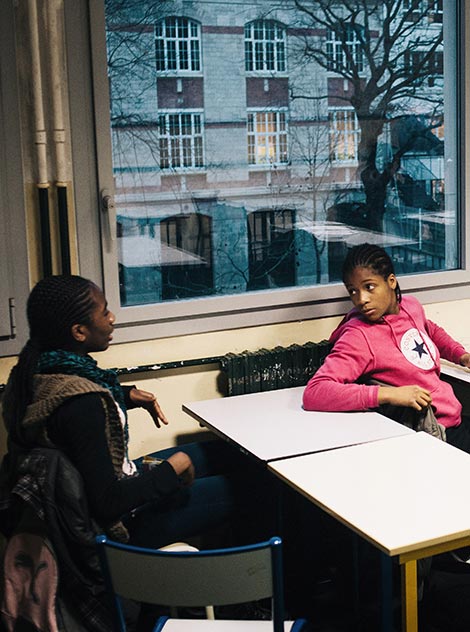
Without a diploma, the chances of professional and social integration plummet by a factor of four. How can we reintroduce the pleasure of learning? Exploring potential pathways and renewing pedagogical practices are some of the areas in which Fondation de France mobilizes all stakeholders!
Let’s help middle schoolers get ahead!
Fondation de France continues to support projects whose aim is to reduce the correlation between a student’s socioeconomic background and their academic achievement. At the same time, it also reinforces commitment to the professionals who are engaged in making middle school a place for learning and practicing good citizenship.
Call for projects

Without a diploma, the chances of professional and social integration plummet by a factor of four. How can we reintroduce the pleasure of learning? Exploring potential pathways and renewing pedagogical practices are some of the areas in which Fondation de France mobilizes all stakeholders!
Let’s help middle schoolers get ahead!
Fondation de France continues to support projects whose aim is to reduce the correlation between a student’s socioeconomic background and their academic achievement. At the same time, it also reinforces commitment to the professionals who are engaged in making middle school a place for learning and practicing good citizenship.
Find out more
Donate to a cause close to your heart
We ensure that your gift is used in the most effective way possible in the field or fields of your choice.
Climate and biodiversity: greater momentum for ecological transition!
Food – better production and consumption for humans and the planet
Across the globe, lockdown and a reduction in travel and trade led to a drop in atmospheric pollution levels, with a positive impact on wildlife and plants. It has now become critical to change our habits in order to lastingly preserve our natural resources, safeguard biodiversity and temper the effects of climate change.
Cooperation as a way of accelerating ecological transition
Environmental issues and ecological transition are challenging humanity to radically reinvent our development, production and consumption patterns. To tackle this major transformation, public regulation is key but so is the engagement of citizens, local authorities, nonprofits and companies. This is because a new lifestyle can only be accepted if it has been created jointly with all local stakeholders. Fondation de France and the donor-advised funds active in this area support ecological transition with innovative, local and collective initiatives.
Whatever the location (rural, urban, suburban, mountain area, etc.) and whatever the topic (energy, climate, agriculture, food, biodiversity, waste, etc.) the Fondation de France Ecological Transition program supports projects:
- which address environmental and social issues, by tackling ecological transition as a lever for the transformation to a more inclusive society;
- which combine the experimentation, implementation and dissemination of best practices;
- which rely on cooperation among a range of actors and, reinvent shared commons locally.
Focus on coastlines, increasingly attractive yet vulnerable areas
Coastlines are among the areas most impacted by climate change and shrinking biodiversity. Coastal areas harbor 80% of marine biodiversity and 20% of the global population. Because of demographic pressure, polluting discharges and overfishing, both coastal and marine ecosystems are under threat.
For the past 50 years, changes have been swift and worrying. Beach erosion, the extinction of certain species, the depletion of fish stocks and the development of epidemics in shellfish farms are all witnesses to these changes.
Protecting the coastline demands a better understanding of these changes and requires collective thinking, for sustainable management. This is the object of an action-research project, Coast and Sea, led by Fondation de France in 2011. Collaborative research projects involve scientists (biologists, geographers, geologists, etc.) and people on the ground.
Inventing the future with new development models
Supporting networks of engaged citizens is also a key strategy nowadays. As part of the Inventing the Future program, Fondation de France has identified a number of players who are able to innovate and test, develop and disseminate best practices in ecological transition. They include the Terra projects, combining the Housing program with an environmental approach and the Transition Campus, which trains the younger generation on transition methodologies.
Contact

Call for projects
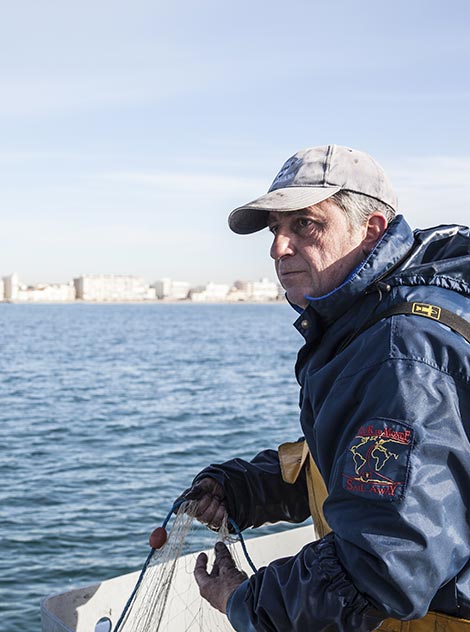
Fondation de France supports projects where policy makers, development stakeholders, citizens and scientists work closely together.
Reinventing our shared commons to achieve greater momentum for ecological transition
Fondation de France supports deep cooperation among citizens, public organizations, private companies and individuals, structured around geographical areas and joint objectives and projects, to extend the scope of ecological transition.
The future of coast and sea – research projects
Fondation de France encourages the development of research practices at the interface between science and society, focusing on the coast and the maritime areas adjacent to it.
Call for projects

Fondation de France supports projects where policy makers, development stakeholders, citizens and scientists work closely together.
Reinventing our shared commons to achieve greater momentum for ecological transition
Fondation de France supports deep cooperation among citizens, public organizations, private companies and individuals, structured around geographical areas and joint objectives and projects, to extend the scope of ecological transition.
The future of coast and sea – research projects
Fondation de France encourages the development of research practices at the interface between science and society, focusing on the coast and the maritime areas adjacent to it.
Donate to a cause close to your heart
We ensure that your gift is used in the most effective way possible in the field or fields of your choice.
Cancer research
Cancer research
Research is making great strides in oncology, paving the way for new strategic treatments. But everyone is not equal in the face of this disease. Since the 1980s, Fondation de France has been supporting researchers so that each patient can benefit from personalized and effective treatment.
Understanding cancer better for a better outcome
An aging population, changes in our lifestyle and environmental risks all contribute to the increase in cancer cases. With 157,000 deaths in 2018, cancer remains the leading cause of death in France. Despite the progress achieved over the past few years as regards diagnosis and treatment, this disease remains the leading cause of death in France, to which 157,000 succumbed in France in 2018. Right now, the pandemic raises the specter of an increase in the number of late diagnoses and a poorer health outcome for patients, due to deferred treatment. However, recovery is now possible for 57% of cancers in women, and 44% of cancers in men.
Too many patients are still faced with treatment failure. How can we better understand the processes that govern the development of cancer? Why have some care protocols proved successful in certain cancers and certain patients but not in others? What are the resistance mechanisms that come into play, and how can we neutralize them? This is one of Fondation de France’s key battles.
The Oncology Treatment Resistance program is one of some 15 projects being run each year, amounting to two million euros.
Contact

Call for projects
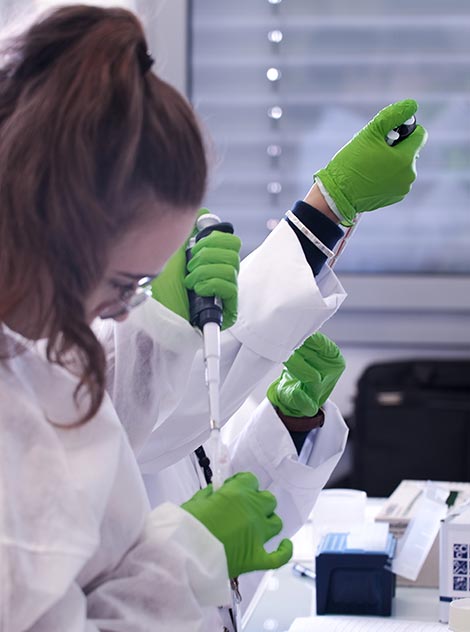
Fondation de France studies the issue of resistance to cancer treatment. It also allocates grants to physicians and pharmacists for their first international assignment.
Let’s help middle schoolers get ahead!
Fondation de France supports fundamental and translational research on resistance to treatment in malignant hematological disorders and solid tumors.
Call for projects

Fondation de France studies the issue of resistance to cancer treatment. It also allocates grants to physicians and pharmacists for their first international assignment.
Let’s help middle schoolers get ahead!
Fondation de France supports fundamental and translational research on resistance to treatment in malignant hematological disorders and solid tumors.
Find out more
Donate to a cause close to your heart
We ensure that your gift is used in the most effective way possible in the field or fields of your choice.
Helping young people as they plan their future
Helping young people as they plan their future
Some of the milestones in a young person’s life can be both costly and transformational for the rest of their journey. Funding a training program, a driver’s license for improved mobility, moving into a new home or perhaps leading a personal project in the nonprofit sector... all of these things can happen with a “helping hand” from Fondation de France in the form of grants– when it matters most.
Grants for young people without family support
Close to 15% of young adults aged 18 to 25 live beneath the poverty line. Continuing a study course, following a vocational training program, moving into new accommodation, buying IT equipment... what can be done if a family isn’t able to provide all the support needed? For many young people, the pandemic came on top of a social crisis which is particularly affecting those under the age of 25, especially students who may have lost casual work and become isolated. In fact, eight out ten students stated that lockdown had interrupted their studies. Fondation de France is committed to helping these young people. It allocates grants, in addition to government aid, to young adults from 18 to 25 years old, on a means-tested basis. In 2020, more than 340 young people were supported in this way. This “helping hand” is organized in partnership with social services and university welfare teams.
Déclics Jeunes: helping young people fulfil their ambitions
Finding purpose and then translating it into a practical project for the common good is the dream of many young people. But many obstacles stand in the way of dreams. Which is why, every year, the Déclics Jeunes competition supports around 20 projects led by 18-30 year olds. Since it was created in 1975, the Déclics Jeunes competition has encouraged 1,000 young people to spread their wings in a wide range of fields, including art, science, technology, social work, humanitarian aid and the environment.
The Déclics Jeunes competition was created thanks to Léon Salavin and Jeanne Fournier’s generous donation of their art collection and supports innovative and charitable projects. In a more general way, it encourages a spirit of enterprise and initiative in young people, to help them find their way in society. Other sponsors have since joined the work of the Salavin-Fournier couple, to help even more young people turn their dreams into reality.
Several donor-advised funds such as the Fondation Odon Vallet offer study grants, providing support to more than 70,000 students in France, Vietnam and Benin! Other founders support their alma mater directly, to promote university research of the highest level.
Contact

Call for projects
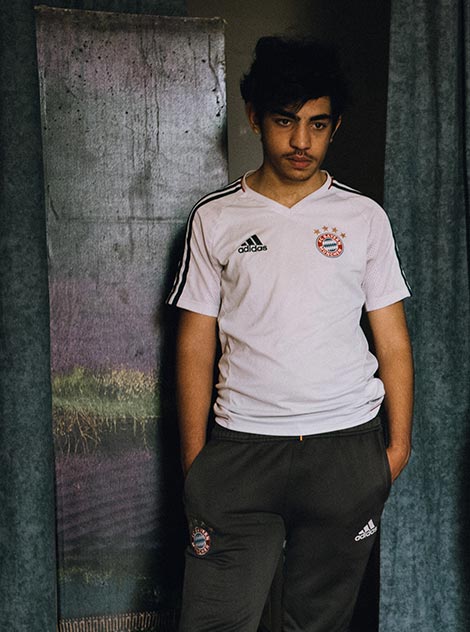
For young adults, entry into adult life and financial independence comes later and later, often because of the need for advanced degrees and difficulties getting a first job and housing.
Let’s help middle schoolers get ahead!
Grants are awarded to young adults from 18 to 25 years old who are without family support and are already receiving help from government agencies. This includes, but is not limited to, young people who have left child social welfare (ASE, Aide sociale à l’enfance) or youth legal protection (PJJ, Protection judiciaire de la jeunesse) facilities.
Grants for young people (“Déclics Jeunes”)
Thanks to the Déclics Jeunes competition, young people between the ages of 18 and 30 were able to make their dream come true in all fields: science, culture, education, social work, international development and the environment to name but a few.
Call for projects

For young adults, entry into adult life and financial independence comes later and later, often because of the need for advanced degrees and difficulties getting a first job and housing.
Let’s help middle schoolers get ahead!
Grants are awarded to young adults from 18 to 25 years old who are without family support and are already receiving help from government agencies. This includes, but is not limited to, young people who have left child social welfare (ASE, Aide sociale à l’enfance) or youth legal protection (PJJ, Protection judiciaire de la jeunesse) facilities.
Grants for young people (“Déclics Jeunes”)
Thanks to the Déclics Jeunes competition, young people between the ages of 18 and 30 were able to make their dream come true in all fields: science, culture, education, social work, international development and the environment to name but a few.
Find out more
Donate to a cause close to your heart
We ensure that your gift is used in the most effective way possible in the field or fields of your choice.
Neurodevelopment and autism: fostering innovative new therapies
Neurodevelopment and autism: fostering innovative new therapies
One child in 100 is born with an autism spectrum disorder. Close to 700,000 people in France are autistic.* The biological, genetic and psychiatric mechanisms behind this pathology are still poorly understood. For 20 years, Fondation de France has been supporting research with the aim of increasing understanding of human cognitive and emotional development.
Collaboration in research – the key to innovation
The first signs of autism appear in early childhood: communication and social relationship issues, behavioral problems, unusual sensory reactions, etc. While the symptoms and degree of the disorder vary from one individual to another, autism generally involves learning disabilities and is a serious social handicap. Today, there is no known cure.
In 1999, faced with the fact that France was behind in the treatment of autism, Fondation de France launched a research program on the subject. They were convinced that in order to make progress, it would be necessary to overcome differences between specialists and engage in multidisciplinary research.
20 years later, these collaborations between researchers and clinicians have resulted in notable progress, but autism spectrum disorders remain a vast subject for research.
Fondation de France’s actions focus on three primary approaches:
- studying the mechanisms of both “normal” and pathological neurodevelopment in children to better understand atypical orientations such as autism;
- promoting early diagnosis and prevention;
- encouraging research on how children learn and developing innovative educational and therapeutic strategies.
* Source : Vaincre l’autisme (Triumph Over Autism)
Contact

Call for projects
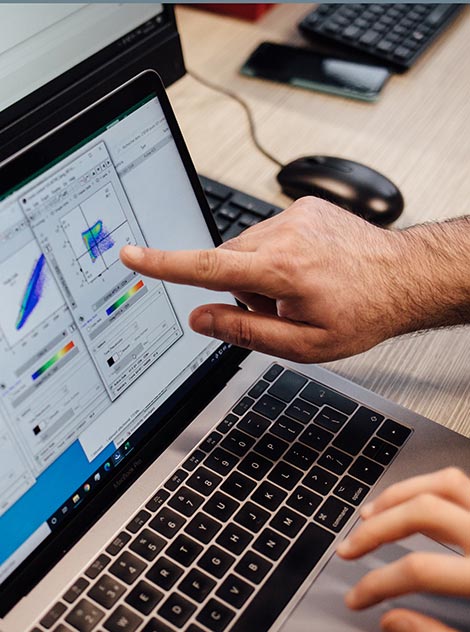
Over the last 20 years, Fondation de France has been supporting research on human cognitive and emotional development, especially regarding children.
Let’s help middle schoolers get ahead!
Fondation de France supports research in this area by funding innovative, collaborative and multidisciplinary projects.
Call for projects

Over the last 20 years, Fondation de France has been supporting research on human cognitive and emotional development, especially regarding children.
Let’s help middle schoolers get ahead!
Fondation de France supports research in this area by funding innovative, collaborative and multidisciplinary projects.
Donate to a cause close to your heart
We ensure that your gift is used in the most effective way possible in the field or fields of your choice.
Fine arts, creative arts
Fine arts, creative arts
Drawing, painting, sculpture, photography, engraving, digital art - the fine arts employ multiple means of expression. Aside from their differences, each one renews our outlook on the world, stimulates our imagination, helps us to understand and share our emotions.
For 50 years, numerous donor-advised funds have been encouraging all forms of fine art, from the Fondation Prix Lacourière, which promotes intaglio engraving, to the Fondation Malatier-Jacquet, which offers international exchange grants for students doing advanced degrees in art and art history. Then there is Fondation Villa Seurat pour l’Art contemporain, whose goal is to foster the visual arts and contemporary dance by funding socially-engaged projects, and the Fondation Cartier pour l’art contemporain, which promotes contemporary art in all its forms. Some funds support projects that are linked to museum collections, like the Fondation des Amis pour le Rayonnement des Musées d’Orsay et de l’Orangerie.
Donate to a cause close to your heart
We ensure that your gift is used in the most effective way possible in the field or fields of your choice.


